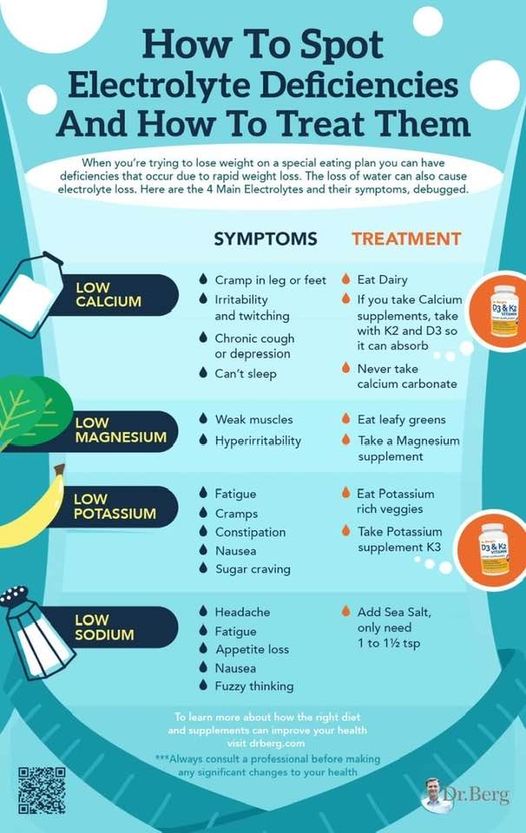
How to Spot and Treat Electrolyte Deficiencies: A Quick Guide
Electrolytes are essential minerals that play a crucial role in maintaining balance in your body. They help regulate nerve and muscle function, hydrate the body, balance blood acidity, and pressure, and help rebuild damaged tissue. However, certain factors, such as rapid weight loss, can lead to electrolyte deficiencies. Here’s how to spot common deficiencies and what you can do to correct them.
1. Low Calcium (Hypocalcemia)
Symptoms of low calcium include:
- Cramping in legs or feet
- Irritability and twitching
- Chronic cough or depression
- Insomnia (difficulty sleeping)
Treatment:
- Eat Dairy: Dairy products are rich in calcium and can help replenish levels.
- Take Calcium Supplements: For better absorption, make sure your calcium supplement contains K2 and D3.
- Avoid Calcium Carbonate: This form of calcium is difficult for the body to absorb.
2. Low Magnesium (Hypomagnesemia)
Signs of magnesium deficiency include:
- Weak muscles
- Hyperirritability (increased irritability or excitability)
Treatment:
- Eat Leafy Greens: Foods like spinach and kale are rich in magnesium.
- Take Magnesium Supplements: If your diet is not enough, a supplement can help restore balance.
3. Low Potassium (Hypokalemia)
Potassium is vital for many bodily functions, and symptoms of deficiency include:
- Fatigue
- Muscle cramps
- Constipation
- Nausea and sugar cravings
Treatment:
- Eat Potassium-Rich Foods: Bananas, avocados, and sweet potatoes are excellent sources of potassium.
- Potassium Supplements: In more severe cases, taking a K3 supplement may be necessary.
4. Low Sodium (Hyponatremia)
Though sodium is often avoided due to concerns about high blood pressure, a deficiency can lead to:
- Headaches
- Fatigue
- Appetite loss
- Nausea
- Fuzzy thinking
Treatment:
- Add Sea Salt to Your Diet: You only need 1 to 1.5 teaspoons of sea salt daily to help balance sodium levels.
Conclusion:
Electrolytes are essential for keeping our bodies functioning properly. If you’re experiencing symptoms like muscle cramps, fatigue, or fuzzy thinking, it could be due to a deficiency in one or more electrolytes. Fortunately, adjusting your diet by incorporating foods rich in calcium, magnesium, potassium, and sodium can help, as can appropriate supplements.
For more detailed advice on improving your health through the right diet and supplements, always consult a healthcare professional before making any significant changes.
